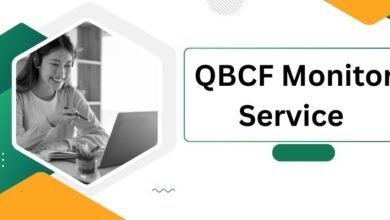Automated Calling Software: Revolutionizing Communication

Introduction
Welcome to the era of Automated calling software! Gone are the days of manual dialing and tedious outreach efforts. With automated calling software, businesses can now reach their target audience more efficiently and effectively than ever before. Whether it’s delivering important announcements, conducting surveys, or providing personalized messages, automated calling software has become an indispensable tool for modern businesses.
Understanding Automated Calling Software
What is Automated Calling Software?
Automated calling software, also known as auto-dialer or robocall software, is a technology that enables businesses to automate outbound calls to a large number of recipients simultaneously. This software utilizes pre-recorded messages or interactive voice response (IVR) systems to communicate with customers, clients, or prospects.
How Does Automated Calling Software Work?
Automated calling software works by dialing phone numbers from a predefined list and delivering a pre-recorded message or connecting the recipient to a live agent. The software can be programmed to initiate calls at scheduled times, ensuring timely delivery of messages to the intended recipients.
Benefits of Automated Calling Software
Enhanced Efficiency
Automated calling software streamlines the communication process, allowing businesses to reach a large audience in a fraction of the time it would take with manual dialing. This efficiency translates to cost savings and increased productivity for organizations of all sizes.
Improved Reach and Accessibility
By leveraging automated calling software, businesses can reach a broader audience regardless of geographical location or time zone. This expanded reach ensures that important messages are delivered promptly to recipients, leading to higher engagement rates and better response times.
Personalized Communication
Despite its automated nature, calling software allows for personalized communication through the use of dynamic message customization. Businesses can tailor their messages based on recipient demographics, preferences, or past interactions, resulting in a more engaging and relevant communication experience.
Real-time Analytics and Reporting
Automated calling software provides valuable insights into campaign performance through real-time analytics and reporting tools. Businesses can track key metrics such as call completion rates, response rates, and conversion rates, enabling them to optimize their outreach strategies for maximum effectiveness.
Best Practices for Using Automated Calling Software
Maintain Compliance with Regulations
When using automated calling software, it’s crucial to adhere to relevant regulations and guidelines governing telemarketing and robocalls. Ensure that you have the necessary permissions to contact recipients and provide opt-out options to comply with regulations such as the Telephone Consumer Protection Act (TCPA).
Segment Your Audience
To maximize the impact of your automated calling campaigns, segment your audience based on factors such as demographics, behavior, or preferences. This allows for more targeted and relevant messaging, increasing the likelihood of engagement and conversion.
Monitor and Analyze Performance
Regularly monitor the performance of your automated calling campaigns and analyze key metrics to identify areas for improvement. Adjust your strategies based on insights gleaned from analytics to optimize campaign performance and achieve your communication objectives.
Test and Iterate
Experiment with different messaging formats, call timings, and audience segments to identify what resonates best with your target audience. Continuously test and iterate your approach to refine your automated calling strategies and drive better results over time.
FAQs (Frequently Asked Questions)
- How secure is automated calling software? Automated calling software employs robust security measures to protect sensitive data and ensure compliance with privacy regulations. Encryption protocols and secure data storage mechanisms safeguard user information from unauthorized access.
- Can automated calling software be integrated with other systems? Yes, many automated calling software solutions offer seamless integration with CRM (Customer Relationship Management) systems, marketing automation platforms, and other third-party applications. This integration allows businesses to synchronize data and streamline their communication workflows.
- What types of businesses can benefit from automated calling software? Automated calling software is beneficial for businesses across various industries, including healthcare, retail, finance, education, and more. Any organization that needs to communicate with a large audience or conduct outreach campaigns can leverage automated calling software to enhance efficiency and effectiveness.
- Is automated calling software cost-effective? Yes, automated calling software offers a cost-effective solution for businesses looking to optimize their communication processes. By automating repetitive tasks and reducing manual labor, businesses can achieve significant cost savings while improving productivity and scalability.
- How customizable are automated calling messages? Automated calling software provides extensive customization options, allowing businesses to tailor their messages to suit specific audiences and objectives. From personalized greetings to dynamic message content, businesses can create highly engaging and relevant communication experiences for their recipients.
- What are some common features of automated calling software? Common features of automated calling software include call scheduling, call recording, interactive voice response (IVR), voice broadcasting, analytics and reporting, and integration capabilities with third-party systems.
Conclusion
In conclusion, Automated calling software is a powerful tool that enables businesses to streamline their communication processes, enhance outreach efforts, and drive better results. By leveraging the benefits of automated calling software, organizations can achieve greater efficiency, reach a broader audience, and deliver personalized communication experiences that resonate with their recipients. As technology continues to evolve, automated calling software will undoubtedly play a vital role in shaping the future of communication.



